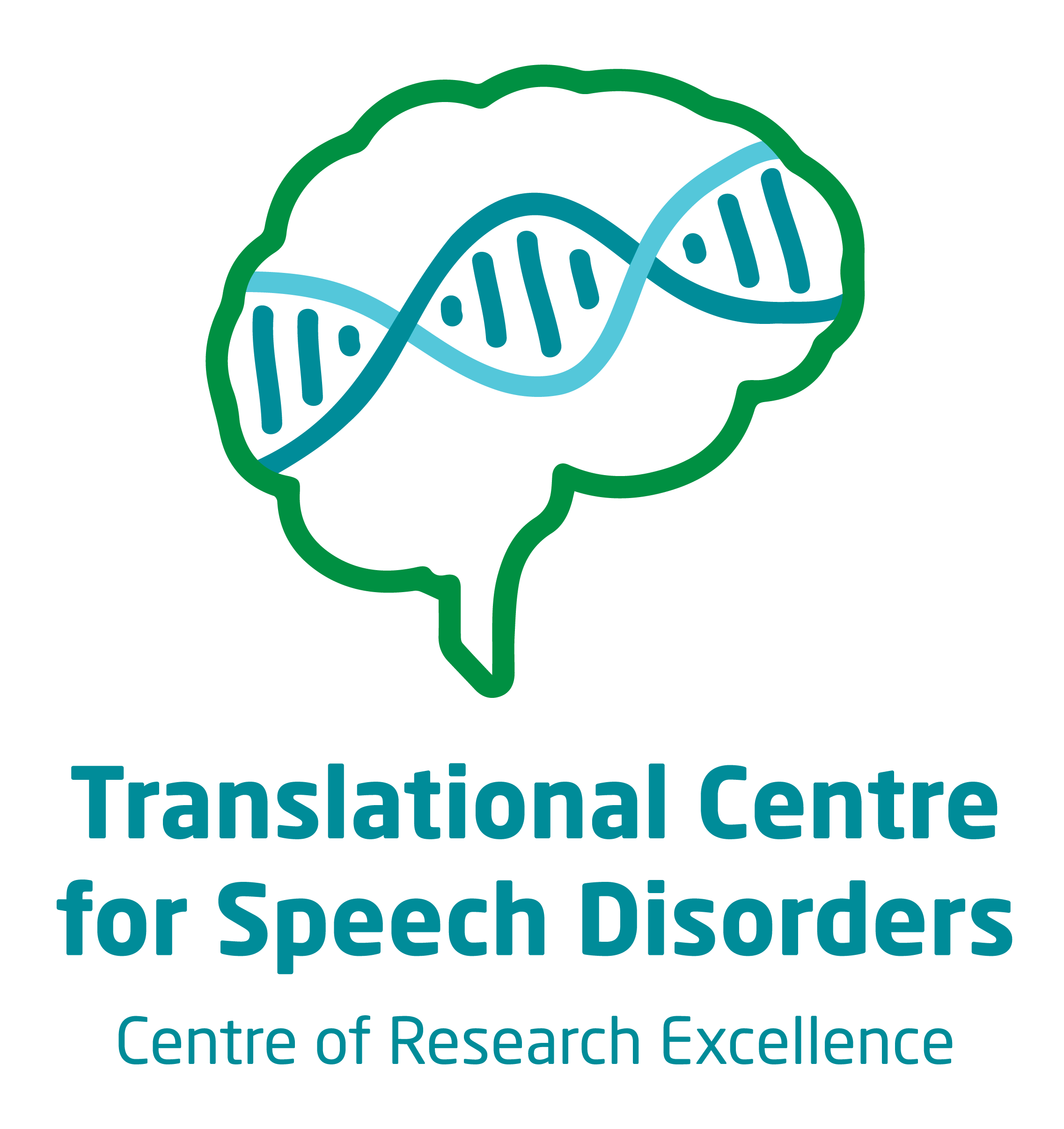POGZ
What is a POGZ-related disorder?
POGZ- related disorder occurs when there is a change or alteration (like a spelling mistake) to the POGZ gene, meaning the gene loses its usual function. This results in changes to the usual development patterns in the affected individual.
POGZ is a gene on chromosome 1q21.3. Whilst the exact function of the POGZ gene is not yet fully understood, this protein is important and can affect how a gene is expressed. 2
Whilst cases have shown that individuals with a POGZ gene variant do display speech and language difficulties, 3, 5 these are largely linked with other conditions such as developmental delay, autism and intellectual disability. 5
Contact
For further information, do get in touch with the CRE Speech and Language team at:
Email: geneticsofspeech@mcri.edu.au
Phone: (03) 9936 6334
Frequently asked questions
The POGZ gene is associated with autism spectrum disorder (ASD) and intellectual disability (ID), particularly White-Sutton Syndrome. 2, 3 A POGZ gene variant effects gene expression during the development of the brain and other systems. 2 As a result, a number of different developmental characteristics and physical features have been associated with this gene variant.
It is currently unclear when individuals with a POGZ gene variant begin speaking. From the limited research conducted on the development of these individuals, it has been identified that their communication abilities ranged from having a speech impairment to having very little speech or language production (sometimes referred to as being minimally or non-verbal). 3, 4, 5
It is currently unclear whether there are any definitive characteristics/features of speech in individuals who have a POGZ gene variant.
In one case study, we found that early speech development was characterised by delayed onset of first words (2 years old) and two word combinations (4 years old). The child was diagnosed with childhood apraxia of speech (CAS) at 3 years old. They began to using short sentences at 5 years old however intelligibility remained challenging due to CAS.
Their ability to understand language was better than their ability to express themselves, with formal language assessment prior to school entry showing a mild receptive language impairment and a severe expressive language impairment. The child had relative strengths in knowledge of words (receptive vocabulary) and basic concepts compared to the use of grammar.
It is currently unclear how an individual with a POGZ gene variant will develop their speech over time. From the case studies that have reported on speech and communication ability, the individual’s communication abilities have varied. As a result, it is difficult to determine their speech development overtime. It is also dependent on the individual’s access to early intervention and continued speech therapy.
It has not been reported as to whether individuals with POGZ gene variant attend mainstream school.
There is no research on speech and language interventions that are specifically designed for individuals with POGZ gene variant. Currently, interventions are specific to an individual’s needs and goals and require a speech pathologist to ensure that current best-evidenced based therapies are implemented.
For information and support on childhood apraxia of speech: https://www.apraxia-kids.org
References
- Fukai, R., Hiraki, Y., Yofune, H., Tsurusaki, Y., Nakashima, M., Saitsu, H., & Matsumoto N. (2015). A case of autism spectrum disorder arising from a de novo missense mutation in POGZ. Journal of Human Genetics, 60, 277–279.
- Ibaraki, K., Hamada, N., Iwamoto, I., Ito, H., Kawamura, N., Morishita, R., ... & Nagata, K. I. (2019). Expression analyses of POGZ, a responsible gene for neurodevelopmental disorders, during mouse brain development. Developmental Neuroscience, 41(1-2), 139-148.
- Stessman, H. A., Willemsen, M. H., Fenckova, M., Penn, O., Hoischen, A., Xiong, B., & Kleefstra T. (2016). Disruption of POGZ is associated with intellectual disability and autism spectrum disorders. American Journal of Human Genetics, 3, 541–552.
- Tan, B., Zou, Y., Zhang, Y., Zhang, R., Ou, J., Shen, Y., & Wu L. (2016). A novel de novo POGZ mutation in a patient with intellectual disability. Journal of Human Genetics, 4, 357–359.
- White, J., Beck, C. R., Harel, T., Posey, J. E., Jhangiani, S. N., Tang, S., & Sutton VR. (2016). POGZ truncating alleles cause syndromic intellectual Genome Medicine, 1, 3.
- Ye, Y., Cho, M. T., Retterer, K., Alexander, N., Ben-Omran, T., Al-Mureikhi, M., & Chung WK. (2015). De novo POGZ mutations are associated with neurodevelopmental disorders and microcephaly. Cold Spring Harbor Molecular Case Studies, 1(1), a000455.










